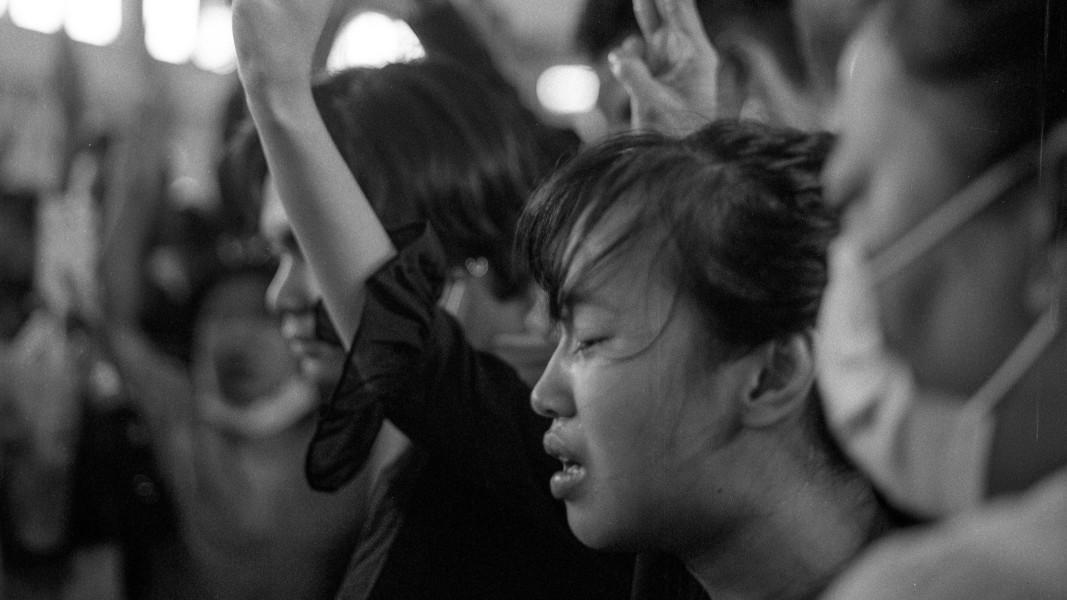Africa-Press – Gambia. Please use the sharing tools found via the share button at the top or side of articles. Copying articles to share with others is a breach of FT.com T&Cs and Copyright Policy. Email [email protected] to buy additional rights. Subscribers may share up to 10 or 20 articles per month using the gift article service. More information can be found here.
https://www.ft.com/content/21246143-ff65-46c1-b128-c0c2399fd204
Thu Thu Zin was last seen alive around midday on July 27. She stumbled to the ground after being shot during a protest in front of the Mahamuni Buddhist temple in Mandalay. The 25-year-old, who worked for a cosmetics company, was one of thousands of young people who came of age during Myanmar’s fleeting decade of democracy. Like many of them, Thu Thu Zin joined a nationwide resistance after General Min Aung Hlaing took power in a military coup in February. According to local media and civil society groups, she died from a gunshot to the head sustained after plainclothes junta forces opened fire into a crowd of protesters. Troops occupying Mandalay Palace, the red-walled fortress where Burma’s last kings reigned until 1885, took her body away and later told Thu Thu Zin’s family she had been cremated. A photo taken before they did shows her wearing a Winnie the Pooh T-shirt and pyjama pants patterned with strawberries. Her face was daubed with the clay make-up many Myanmar women wear, her eyes open and lips parted in an expression of surprise. Myanmar Now, one of the online outlets whose journalists have been chronicling the unrest since the beginning of the year, wrote about Thu Thu Zin’s death in a story headlined “A Funeral Without a Body in Mandalay”. Hers was by no means the most shocking death in Myanmar since Min Aung Hlaing arrested Aung San Suu Kyi, the country’s civilian leader, and hundreds of otherPlease use the sharing tools found via the share button at the top or side of articles. Copying articles to share with others is a breach of FT.com T&Cs and Copyright Policy. Email [email protected] to buy additional rights. Subscribers may share up to 10 or 20 articles per month using the gift article service. More information can be found here.
https://www.ft.com/content/21246143-ff65-46c1-b128-c0c2399fd204
Since the coup, my social media timelines have filled up with pictures from Myanmar showing men, women and children who have been badly beaten or fatally shot. Videos depict junta troops bludgeoning first responders who helped protesters and casually shooting people riding on motorbikes. In March, the story of a teenage protester named Kyal Sin went viral when she was shot dead, her T-shirt emblazoned with the words “Everything Will Be OK”. It has become one of the defining images of this, Myanmar’s annus horribilis. More recently, as an insurgency in north-west Myanmar was met with a brutal military response, media have published pictures of corpses piled up by roadsides, houses and churches in flames and entire neighbourhoods reduced to ruins after bombardments. But something about Thu Thu Zin’s story stuck in my mind: the young life cut short, the spiriting away of her remains, the scant digital footprint she left behind. As I tried to find out more, I discovered that her case had already been logged and studied by researchers in south-east Asia and overseas. It’s part of a broader effort by human rights defenders, Myanmar’s parallel government and international justice officials to begin assembling an archive of material that might one day end up in court as evidence of the Burmese military’s crimes, including both the post-coup crackdown this year and the horrific offensive targeting Rohingya Muslims in 2017. Today, Myanmar is plagued by a broader, more brutal conflict as the nationwide “spring revolution” persists, despite showing no signs of being able to displace the ruling junta. More violence is a certainty. It would be perverse and premature to expect a return to democracy any time soon. But there are people working to keep the truth of what is happening inside the country from being lost entirely. These investigators — some self-taught, others a part of the world’s plodding system for prosecuting war crimes and crimes against humanity — are supplementing traditional human rights fact-finding with pioneering open-source tools and digital forensics. In doing so, they are laying the groundwork for justice, however long delayed.
For More News And Analysis About Gambia Follow Africa-Press






